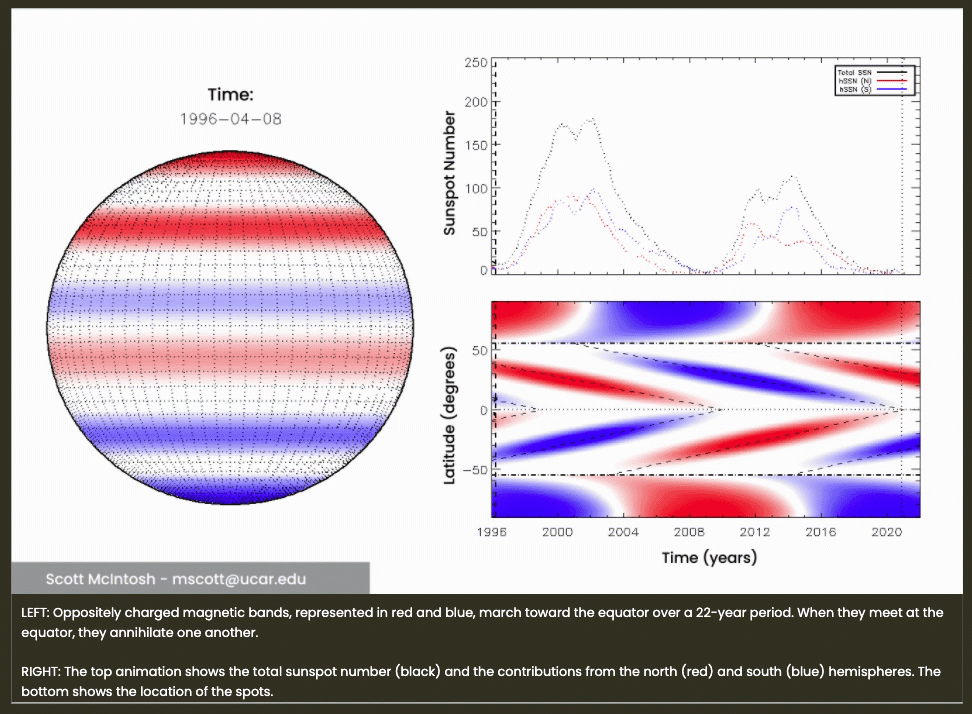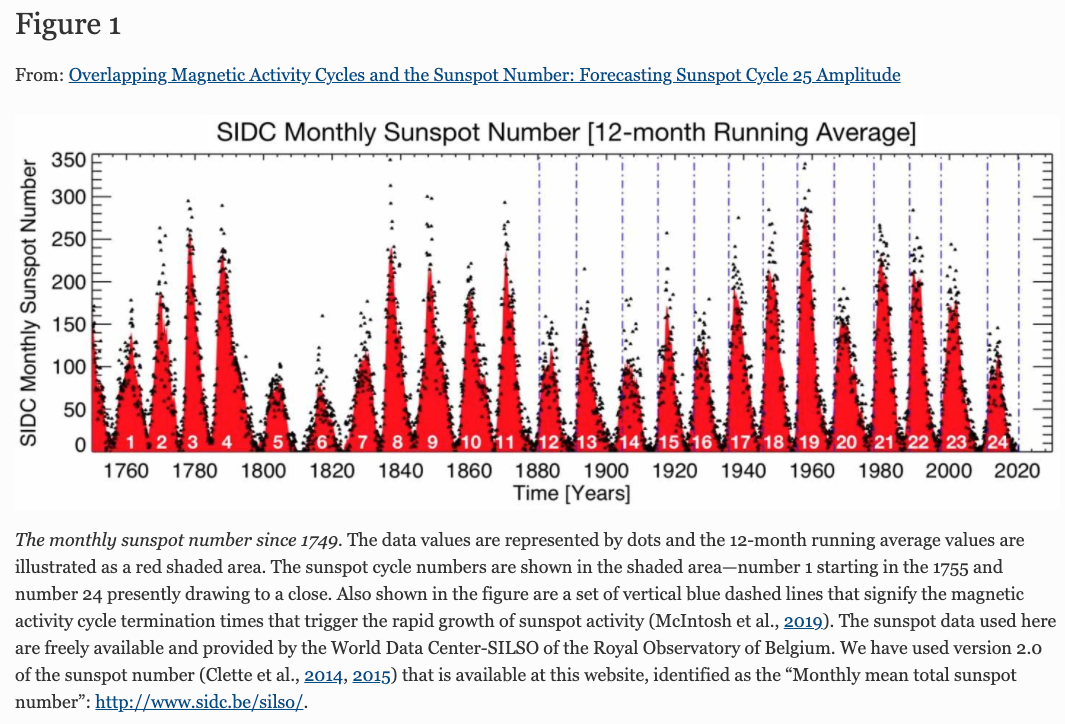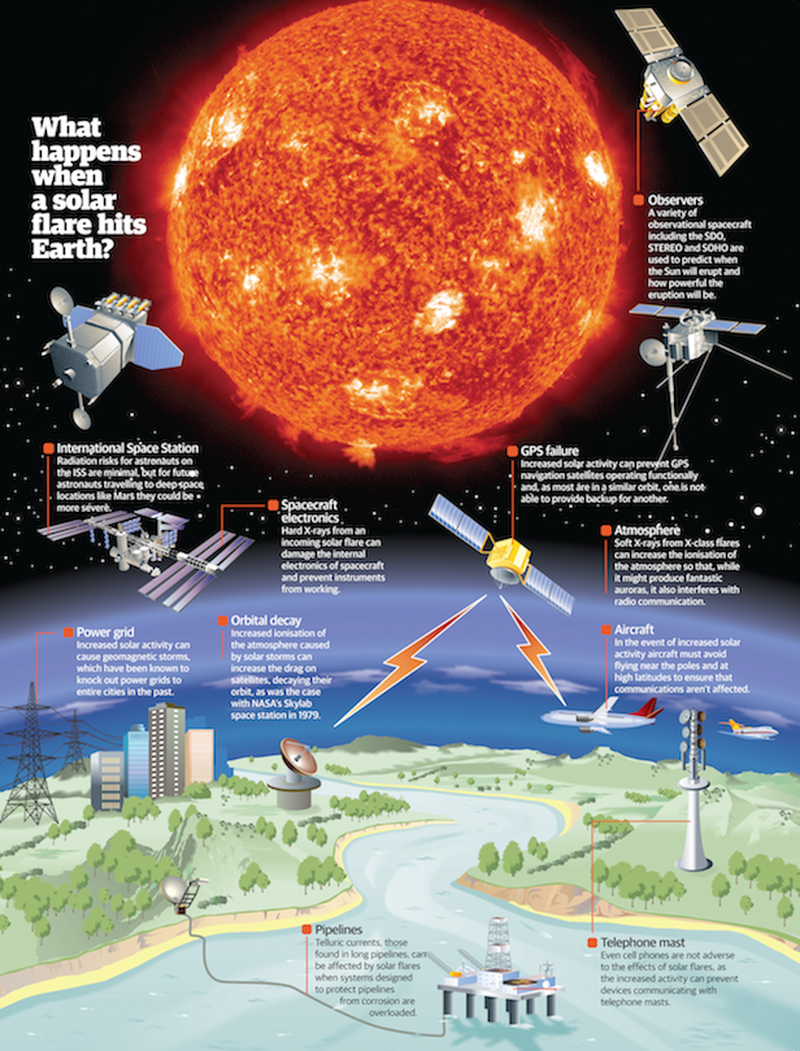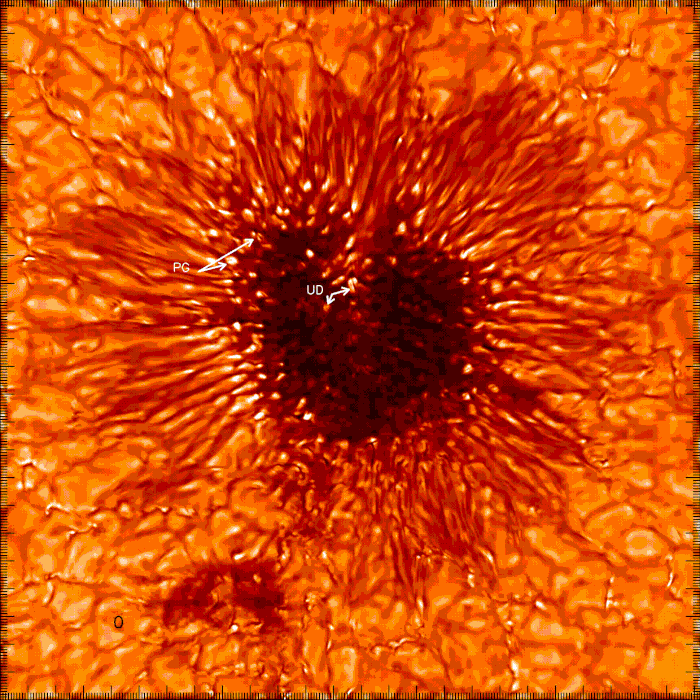Digital Economy Disruption Possible As “Terminator Event” Suggests Strongest Sunspot Cycle On Record Imminent
 By Tyler Durden
By Tyler Durden
Researchers at the National Center for Atmospheric Research (NCAR) are forecasting the Sun is about to wake up, expected to hurl pulses of energy into space. Earth’s implications could be dire as stormy “space weather” could be disastrous for the digital economy.
NCAR’s new paper published in Solar Physics and titled “Overlapping Magnetic Activity Cycles and the Sunspot Number: Forecasting Sunspot Cycle 25 Amplitude,” predicts Sunspot Cycle 25 could peak with a maximum sunspot number between 210 and 260. This contradicts the official forecast by the National Aeronautics and Space Administration and the National Oceanic and Atmospheric Administration, who both expect Sunspot Cycle 25 to be as weak as Sunspot Cycle 24 peaked around 116.
If the NCAR forecast is correct, it will support the research team’s theory that the Sun has “overlapping 22-year magnetic cycles that interact to produce the well-known, approximately 11-year sunspot cycle as a byproduct. 22-year cycles repeat like clockwork and could be a key to finally making accurate predictions of the timing and nature of sunspot cycles, as well as many of the effects they produce,” according to NCAR & UCAR News, citing the study’s authors.
[do_widget id=text-16]
Using 140 years of solar observations, researchers were able to identify “terminator” events that signal the end of a sunspot cycle. They believe Sunspot Cycle 24 ended in the first half of 2020, with Sunspot Cycle 25 beginning imminently.
“McIntosh believes the bright points mark the travel of magnetic field bands, which wrap around the Sun. When the bands from the northern and southern hemispheres – which have oppositely charged magnetic fields – meet at the equator, they mutually annihilate one another leading to a “terminator” event. These terminators are crucial markers on the Sun’s 22-year clock, McIntosh says, because they flag the end of a magnetic cycle, along with its corresponding sunspot cycle, — and act as a trigger for the following magnetic cycle to begin,” NCAR & UCAR News said.
Terminator Event
NCAR Deputy Director Scott McIntosh, a solar physicist who led the study, said, “evidence for terminators has been hidden in the observational record for more than a century, but until now, we didn’t know what we were looking for. By combining such a wide variety of observations over so many years, we were able to piece together these events and provide an entirely new look at how the Sun’s interior drives the solar cycle.”
A sunspot’s source is a solar flare, which can interrupt satellite activity, navigation systems, and even blow out transformers on power grids. Simultaneously, sunspots may also release coronal mass ejections, which is magnetic energy that can produce northern lights.
“Each of the ‘scales’ around the sunspot itself is a convection cell – areas roughly 1,500km (932 miles) across, with hot plasma erupting from the center that then cools as it flows outwards, creating the patterned effect around the periphery of the sunspot itself,” RT News said.
Perhaps the NCAR forecast is right. Last week, one of the strongest solar explosions, measured as an M4.4-category eruption, was recorded.
A few years back, Mike Hapgood, head of space weather at the UK Rutherford Appleton Laboratory, said the Sun has been “very quiet for the last ten years. It reminds people not to be complacent.”
Even the federal government has started to prepare the nation for a space weather event with the 2016 executive order signed by the Obama administration titled “Coordinating Efforts to Prepare the Nation for Space Weather Events.”
A super active solar cycle could be horrible news for the digital economy as disruptions sparked by solar flares could create massive economic damage. Just imagine if a solar storm knocks out power grids or communication networks, with everyone working from home, the economy would be virtually paralyzed.
Source: Zero Hedge
FREE PDF: 10 Best Books To Survive Food Shortages & Famines






